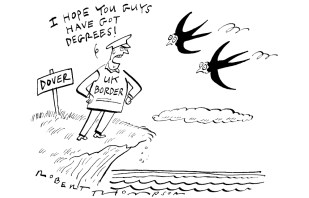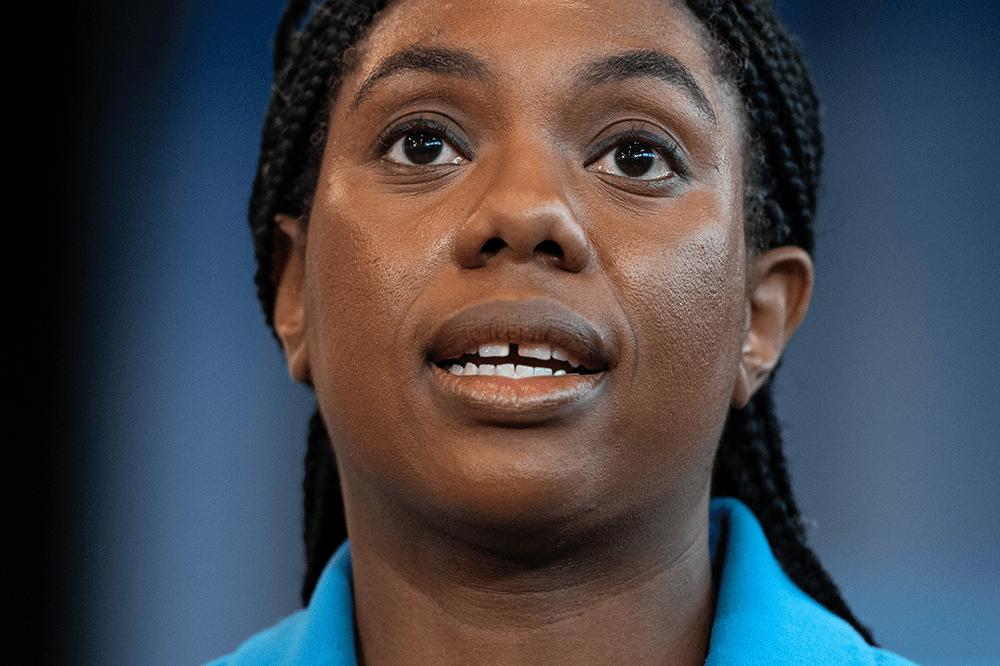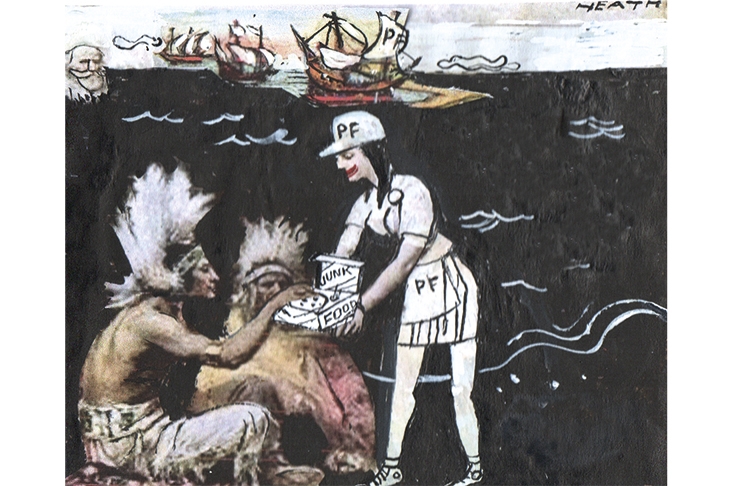
Market choice has long been an article of faith in the Conservative party. But the Tories are less keen on competition when it comes to their own fate. Traditionally, the party’s historic market share ensured that, after some time in opposition, the pendulum eventually swung back their way. That rule no longer holds true.
This month’s local elections offered a painful case study in consumer choice. With five serious parties on offer, just 15 per cent of voters chose to back the Conservatives. Polls suggest that, in a general election, the onetime ‘natural party of government’ would be reduced to barely two dozen seats. ‘Existential’ is the word favoured by many Tories to describe their party’s plight.
Inevitably, some want to ‘sack the management’. Kemi Badenoch has only been in the job for six months – but that did not stop the outgoing leader of North Northamptonshire Council from demanding she quit. Those close to the party leader stress that they appreciate the gravity of the results. ‘We know we cannot have another cycle like this,’ admits one aide.
Many in Badenoch’s team had hoped that the first 12 months would allow the party to rebuild following the worst defeat in its history. The Tories had been in power for so long that none of the shadow cabinet had served as opposition ministers before. Time, Badenoch’s allies stressed, was needed.
Yet the rise of Reform necessitates a rethink: a five-year strategy to rebuild the party needs to line up with political reality. Now some MPs are wondering if Badenoch will be afforded another 12 months. ‘There is a vacuum,’ admits one MP. ‘And Nigel [Farage] is filling it.’
Badenoch’s team in LOTO – the Leader of the Opposition’s Office – are giving assurances of a ‘step change’.
Opposition is less contemplative than many would have liked, as MPs scramble to keep up with shifting politics. Parliament and traditional media matter less than before; X and GB News have changed the rules of the game. One Tory MP points to Keir Starmer’s ‘island of strangers’ speech as a sign of how fast the Overton window is shifting.
There is an unspoken alliance between Starmer and Farage: to asphyxiate Badenoch’s party
Yet, in a competitive market, the party is no longer guaranteed the attention it once commanded. For example, the shadow defence team is championing a petition to stop prosecutions for British Army veterans in Northern Ireland. But, as one MP puts it gloomily, once a debate is secured: ‘Reform will turn up, make their three-minute speech and get it on GB News.’
The task is made harder by the quiet exodus of junior staff. ‘So many of my friends are leaving politics,’ says one young Tory aide. ‘They’re saying they’ll come back in three or four years’ time – if there is a Conservative party to return to.’
Badenoch’s allies say that her frontbench choices will reflect this. ‘She reserves the right to make changes when she wants,’ says one. Within LOTO, there is an acknowledgement that there are those in the shadow cabinet working harder than others. Some, like Robert Jenrick, are landing blows; others are clearly not. Ministers and their staff are withering about the current Tory frontbench. ‘Half our cabinet has no opposition,’ says a No. 10 aide. ‘Wes Streeting is out there unopposed.’
Policies will flow throughout the summer, with migration set to be a staple theme. There is an increasing expectation too that the Tories will commit to leaving the European Convention on Human Rights. Donors, meanwhile, are keen to see more of a focus on the economy: an area of strength where voters prefer the Conservatives to Labour.

Much could depend on this year’s party conference. Loyalists hope that a commanding performance will show Badenoch at her best, rallying the Tory faithful. But at least three members of the shadow cabinet think her first conference speech as leader could also be her last.
Older hands caution that the atmosphere of the first year in opposition is always terrible. ‘1998 was much worse than 1997,’ reflects one veteran.
Next spring will see Holyrood and Senedd elections – and a set of locals four times bigger than this one. Badenoch’s team hope that voters will have forgiven the party’s record by then. Steady progress, they say, is the only way to demonstrate the folly of choosing a fifth leader in just six years. ‘We would be a joke,’ says one MP who did not vote for her.
Complicating all this is the new unspoken alliance between Farage and Starmer, both of whom explicitly frame the next election as a two-horse race. Their aim is to asphyxiate Badenoch’s party: deny them the oxygen of publicity and remove the Conservatives from the conversation. One poll this week suggested voters regard Farage, not Badenoch, as the real Leader of the Opposition; next year’s elections in Edinburgh and Cardiff will test that notion.
After 30 years of fighting Farage, the Tories still lack a coherent strategy for countering him. Two schools of thought emerged at last week’s shadow cabinet meeting. The first is to ignore him and dismiss Reform as a populist protest party. The second is to take them seriously and fight, trading punches on policy. Most Tories veer between the two; many comfort themselves with self-assurances that Farage will ‘blow up.’
One opposing strategist replies that the Tories are ‘doing what most failing companies do’ and suffering from ‘defensive management’. Risk avoidance is prioritised over innovation. ‘Effectively, they are slowly managing the decline, avoiding one bad move that will put them out of business.’
For too long, the Tory retort to Farage has been to claim a rival party on the right could never win elections. That is now demonstrably not the case. A different response is required – or else Badenoch risks leading the ‘Tinkerbell Tories’: a party which ceases to exist when no one believes in it any more.








Comments